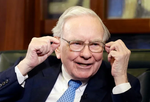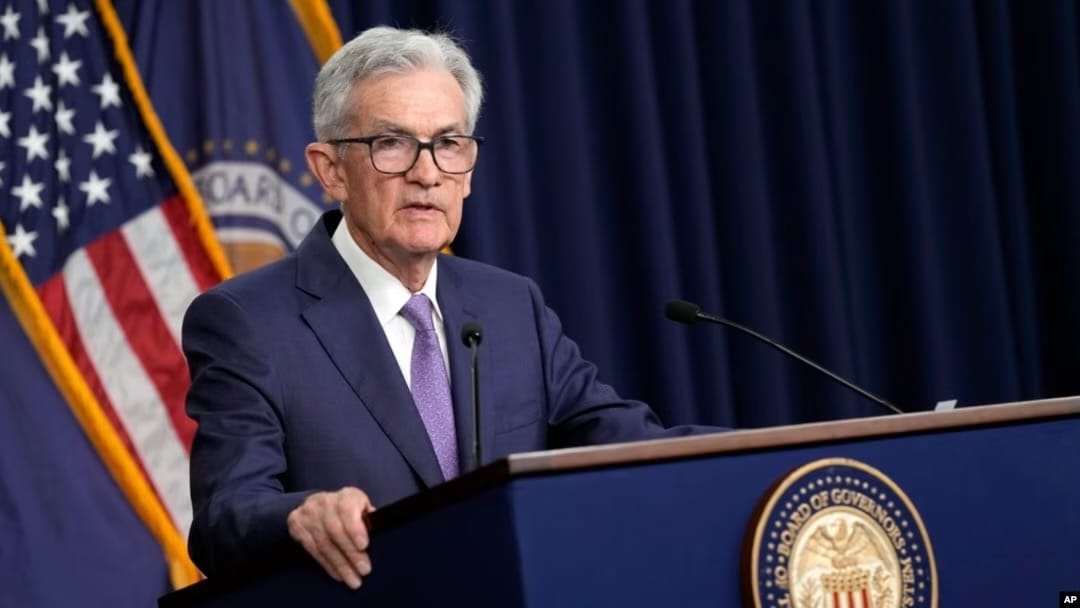Featured Posts

Let’s talk markets. Specifically, let’s talk about what just went down (literally) in the Nasdaq this week. If you’ve been paying attention—or maybe even if you haven’t—it’s gotten pretty ugly pretty fast. I even tweeted something about it: Markets take the stairs up

The drop happened fast! If you blinked sometime in February, you might’ve missed that we were at new all-time highs. Now? We're in full correction territory. Just yesterday, the S&P 500 fell more 2%, and now close to 10% in less than a month. Not

Did you know that 56% of Wisconsin’s agricultural exports could be impacted by tariffs from Canada, Mexico, and China? Wisconsin now represents the 11th largest exporter of agricultural products in the U.S., up from 13th in 2023 (WI DATCP). In 2024, Wisconsin’s agricultural exports reached $3.97

So, here’s something no one seems to be making a big deal about: tariffs are rising fast, and they’re dragging the US economy down. You won’t hear much about it in the headlines, but the effects could start to pile up. Higher prices, weaker growth, and more

Last Wednesday, July 17th, the Federal Reserve released it's Beige Book economic report. I've read it, and although it's long, I captured the highlights you'll want to read.
This report from the Federal Reserve gave us a mixed bag: seven districts saw growth, while five were flat or declining.
Household spending was tracked and didn't move much from May to July. Auto sales varied though, with some districts blaming the recent cyberattack and high interest rates.
What's the outlook? The fed said they're expecting slower growth over the next 6 months due to election uncertainty, domestic policy, geopolitical tension, and inflation.
Job growth was flat/slightly up. Manufacturing jobs dropped due to slowing equipment orders (bad for Nvidia?). Skilled-worker shortages are persisting, but labor supply is improving in some districts. There's also a new wave of lower turnover rates, which could slow the rate of new hires. Prices also inched up modestly. Atlanta saw a big jump in copper and electrical supplies in their region.
Brace yourself! The rest of this post will show you the full rundown of what's happening in each district. Go to the bottom for a download of the report
Federal Reserve Bank of Minneapolis: Minneapolis reported slight job growth, but labor demand was still cooling. Wages were up moderately and still above pre-pandemic levels. Single-family construction permits rose more than 20% in May and June compared with last year, much higher than the rest of the US.
Federal Reserve Bank of Chicago: Chicago’s job market improved moderately despite tight conditions. Wages and benefits rose slightly, thanks to new union contracts in the region. Consumer spending ticked up, especially in leisure and hospitality, but manufacturing demand dipped.
Federal Reserve Bank of Kansas City: Kansas City’s employment stayed stable with average wage growth. Businesses have started to cut back on hours and job postings. Consumer spending is suprisingly strong, particularly in travel. Manufacturing slowed slightly, while property sales increased.
Federal Reserve Bank of Cleveland: Cleveland’s economy wasn't so great this time around. Discretionary spending is down for the last two months. Jobs stayed flat, wages grew a bit, but health insurance premiums jumped 15% (more on that here). Consumer spending fell slightly, and auto sales were struggling. Manufacturing demand dropped.
Federal Reserve Bank of Boston: Boston saw average growth. Jobs were flat, wages were up slightly. Hospitality sectors found more workers in the last few months. Home prices and hotel rates climbed during that time, too. Auto sales increased.
Federal Reserve Bank of New York: New York saw a slight job bump and moderate wage hikes. Consumer spending increased a bit, thanks to steady tourism. The rental market around NYC is super tight. The finance sector is also down with rising delinquency rates.
Federal Reserve Bank of Philadelphia: Philly’s job market improved in the last few months, with easier hiring and wages up 3-4%. Retail spending dipped though, but tourism held steady. Loans and mortgages have been stable, but auto lending dropped.
Federal Reserve Bank of Richmond: Richmond had slight job growth with moderate wage hikes. Leisure travel surged this time of the year, but manufacturing dipped. The residential real estate market slowed, while commercial leasing increased slightly (is commercial real estate bottoming?)
Federal Reserve Bank of Atlanta: Atlanta’s hiring increased, with better worker availability and 3-4% wage growth (same as Philadehlphia). Home sales in Florida tanked, with inventories up. Leisure travel weakened, but group and business travel picked up.
Federal Reserve Bank of St. Louis: St. Louis had steady jobs and average wage growth. Consumer spending was mixed, and manufacturing had moderate growth.
Federal Reserve Bank of Dallas: Dallas saw a modest job increase, with expected wage growth of 3.5% over the next year, down from 4.9%. Retail sales dropped. The finance sector saw faster loan growth but rising nonperformance rates. Energy activity was 'flat-to-modest' with natural gas prices being an issue members expect.
Federal Reserve Bank of San Francisco: San Francisco's jobs stayed flat with slight wage growth. Retail sales dipped, and the services sector saw mixed demand. Residential real estate slowed, and consumer loan delinquencies rose. Housing insecurity remains a big issue in this area.
Download what I read to make this post here 👇


